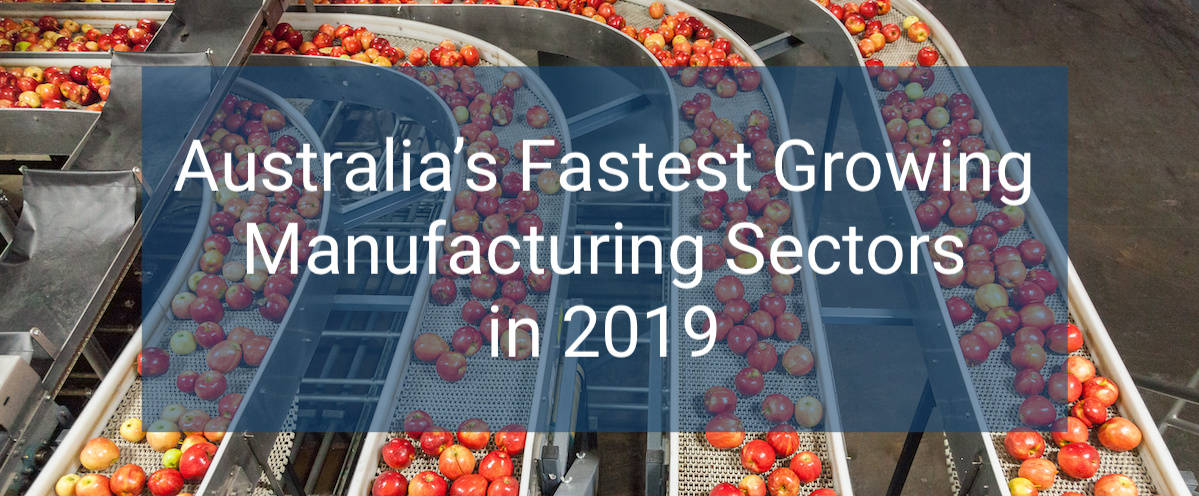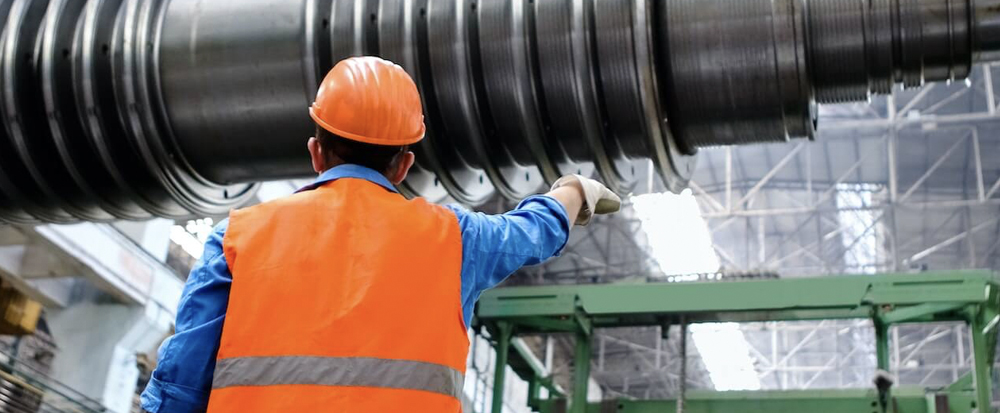Despite what many headlines suggest, Australia’s manufacturers are generally confident that their sector is growing. Business picked up in early 2019, with most areas of the industry indicating that their sales were expanding. Although confidence dipped a little in June, many areas of manufacturing have significant opportunities to look forward to.
The Australian Industry Group, which publishes the monthly Australian Performance of Manufacturing Index (PMI), said in its latest report:
Heavy industrial manufacturers continue to report weaker economic conditions than others, with the housing construction downturn and ongoing drought negatively impacting sales of ‘machinery & equipment’ and ‘metal products’ to construction and the agricultural sector.
More positively, export demand for Australian food, beverages, pharmaceuticals, vitamins and other consumer products continue to support the food, beverages and chemicals sectors.
PMI data changes month-on-month, but overall, the fastest growing areas have been food & beverages, refining & chemicals, construction and furniture.
Food and Beverage Production
Food and beverage production — which is distinct from farming — is a star performer of the Australian economy at the moment as it benefits from a growing taste for western drinks and foodstuffs among the Chinese market.
In stark contrast to the United States, Australia is pursuing a positive trading policy with China, and this has bolstered food and drink exporters. The removal of all import duties on Australian bottled and bulk wine from January 1 under the China-Australia Free Trade Agreement, for example, helped Australian wine exports to China to new highs, increasing 7% in value to $1.2 billion in the 12 months to June.
Wine producers are actually enjoying the best kind of growth — they are selling more expensive wines and are therefore making more money without having to ship any more bottles: Australia’s wine exports have actually decreased in volume terms in several key markets, including China and the United Kingdom, as the industry — and drinkers — moves up market.
Chemicals Sector
Another industry that is benefiting from increased value is the chemicals sector. Australia’s chemicals and plastics manufacturing industry is large: it employs over 60,000, exports $10 billion in goods, and imports $50 billion. That’s not as large as it once was, as the sub-sector has undergone significant rationalisation in the last decade.
However, the challenges of the new green economy developing globally and China’s hunger for increasingly sophisticated products as its own manufacturers move up the value chain pose considerable opportunities to Australian chemicals makers.
In a recent report, business advisory firm KPMG wrote:
Globalisation has become a potent force in the chemical industry, placing onerous new demands on industry players.
Mergers and acquisitions, strategic alliances and the erosion of trade barriers are driving globalisation and consolidation in the chemicals sector. Government regulation, technological change, climate change and associated sustainability considerations are other factors propelling change in the industry.
Building Materials – Construction Related Industries
The ‘building materials, wood, furniture & other manufacturing’ sub-sector was the most optimistic in June’s PMI report, but in fact, it is a tale of two halves: (1) those that supply the state and (2) manufacturers serving other businesses in the building sector.
The Australian Industry Group report stated:
Respondents selling products to government customers reported strong conditions, but other respondents reported worse conditions in June due to slower residential building activity.
This is a largely domestic-focused area of industry, and its fortunes are tied to government spending plans and the housing market. It could, therefore, benefit significantly from recent cuts to interest rates and call for ministers to further stimulate the economy through increased infrastructure spending.
Clothing Manufacturers
Textiles, clothing, and footwear, on the other hand, has been shrinking – as expected. Its PMI score has consistently been below the 50 mark, which separates growth from contraction, and it hit a very pessimistic 44.1 in June. The report said, “Textiles, clothing and related segments continue to face especially tough local and global trading conditions.”
It should be noted, however, that this is an industry which has shifted considerable production overseas. If an Australian clothing firm moves some of its production to Asia, domestic manufacturing will register a fall, but for the individual business, the move could significantly increase profitability.
Funding for Imports and Exports
It is clear that Australian manufacturers are increasingly part of a global marketplace. This means increased competition but also vastly expanded opportunities. Australia — with its easy access to Asia geographically and increasingly bureaucratically — is in an enviable position relative to the USA and Europe. For the small or medium-sized manufacturers however, international trading can be intimidating and expensive.
This is where specialist trade finance can be a huge help. Import finance and export finance, both available from OptiPay, are designed not just to fund your ambitions, but also to facilitate international trade. For those that then have customers (debtors) that pay 45-90 days after delivering the product, a combined Import finance together with OptiPay’s Invoice Finance solution helps reduce the working capital a business requires by 60+ percent.
There’s never been a better time to outsource production or to start exporting: if funding and logistics are the only things that are stopping you, call OptiPay today and let us worry about the details.
Who is OptiPay?
OptiPay, one of Australia’s leading business finance providers, has been dedicated to helping small business owners solve cash flow challenges for over a decade and has provided $1.5 billion in business funding to more than 500 Australian businesses. OptiPay specialises in modern financing solutions such as invoice factoring, invoice finance, debtor finance, and lines of credit. OptiPay’s mission is to support business growth providing liquidity in as little as 24 hours, ensuring they have access to tomorrow’s cash flow today. This rapid access to funds helps businesses maintain smooth operations and seize growth opportunities without the stress of cash flow constraints. At OptiPay, we believe that healthy cash flow is the lifeblood of any successful business. Our commitment to helping businesses overcome financial hurdles and achieve their growth ambitions has solidified our reputation as a trusted partner in the business finance sector. Whether you are looking to stabilise your cash flow, expand your operations, or navigate financial challenges, OptiPay is here to support your journey with innovative and efficient financing solutions.



